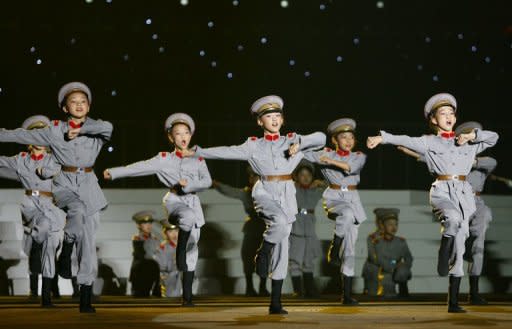China grapples with revolutionary past, 100 years on
When the army of the Qing Dynasty turned its guns on the state on October 10 1911, it signalled the end of 2,000 years of imperial rule in China and the promise of a democratic republican government. The first shots were fired in Wuchang -- part of today's city of Wuhan -- sparking battles between imperial forces and rebel soldiers during which 16 other regions declared independence in what has come to be known as the Xinhai Revolution. The Wuchang Uprising led to the establishment of the Republic of China by revolutionary Sun Yat-sen's Nationalist Party, which fought under the banner of nationalism, democracy and the people's livelihood. China is marking the centennial of the uprising with the release of "1911", a big-budget historical movie directed by Jackie Chan, and a new museum in the central metropolis of Wuhan where it began. But the celebrations will be muted, particularly compared with those that marked the 90th birthday in July of the ruling Communist Party. That, say experts, is because of the troublesome connotations with democracy and Taiwan. The Nationalist government was overthrown in 1949 after a bloody civil war with the Communist Party that has ruled China ever since, forcing the Nationalists to flee to Taiwan. "The (Communist) party will play up the ability of the people to throw off the yoke of imperialism, that the people have stood up, and day by day China is becoming a superpower," said Willy Lam, an expert on Chinese politics at the Chinese University of Hong Kong. "But they will not want to discuss the democratic element. The emphasis is on wealth of the people and international power." Sun, who died in 1925, remains respected as the father of new China both on the mainland and in Taiwan. October 10, the day the Wuchang Uprising began, is celebrated as Taiwan's national day. Beijing believes it is heir to Sun's legacy and argues that a dramatic rise in living standards during the past 30 years of economic reform is the fruit of his revolution. But the ideological battle between the Nationalists and Communists continues over whether the Xinhai Revolution ushered in a truly republican form of government in China. "The eruption of the Xinhai Revolution overthrew several thousand years of imperial rule and has had a huge impact on the psychology of the Chinese people," historian Lei Yi of the China Academy of Social Sciences told AFP. "The Communist Party believes that they are continuing the spirit of the Xinhai Revolution and that the Nationalists betrayed the revolution." Qin Yongmin, a Wuhan resident who was released last year from a 12-year jail term for subversion, argues that the revolution only replaced one dictator with another. "I do not have a very high appraisal of the Xinhai Revolution," Qin, who was jailed in 1998 after calling for multi-party democracy in China as chairman of the outlawed China Democracy Party, told AFP. "The imperial system was removed, but a totalitarian dictator stepped in. Mao Zedong was not an emperor, he was worse than an emperor, he was more of a dictator than the emperor." In the run-up to the anniversary, China's state-run newspapers carried front-page articles on the 1911 uprising, but avoided any mention of its democratic aims. Chan's film, "1911", is similarly quiet on the subject. There have also been reports of academic events being cancelled or pressure placed on their organisers to avoid reference to the contemporary implications of the revolution's aims. "Wuhan has always been proud of the Wuchang Uprising and its contribution to China's development, but the people are actually very indifferent to it," said retiree Guo Xinglian as he strolled in a park near where the uprising began. "Today a lot of people think the Communist Party is more corrupt than the Qing Dynasty, but they also know that the Communist Party is very strong and any attempt at an uprising will be crushed."



